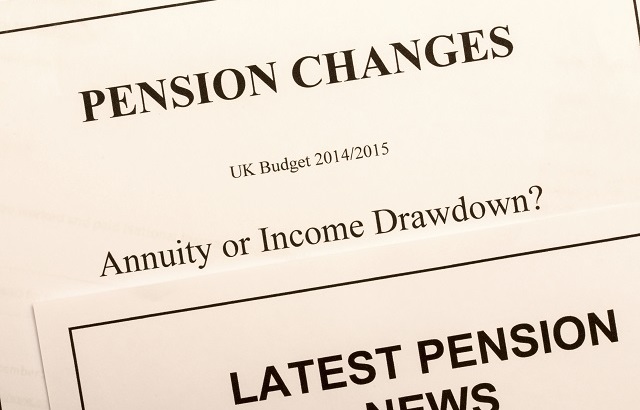When announcing a consultation with the industry on Monday about its plans, the government said it believes there could be as many as 8 scam calls every second in the UK, equivalent to 250 million calls per year.
It said Citizens Advice had calculated that 10.9 million consumers have received unsolicited contact about their pension since April 2015.
“There were 30,000 ‘Defined Contribution’ scheme transfers in 2015/16, representing £1bn of assets,” HM Treasury and the Department for Work and Pensions said in a statement.
“Industry estimates suggest that fraudsters could be behind as many as one in 10 pension transfer requests,” it said.
Power to providers
As a result the government said it plans to give greater powers to existing pension providers to block suspicious transfers to a personal pension scheme, including a self-invested personal pension (Sipp), unless:
- the receiving scheme is a personal pension scheme operated by an FCA authorised firm or entity,
- a genuine employment link to the receiving occupational pension scheme can be demonstrated,
- there is evidence of regular earnings from that employment and confirmation that the employer has agreed to participate in the receiving scheme; or
- the receiving occupational pension scheme is an authorised master trust.
Cold calling ban
The government also plans a wholesale ban on cold calling in relation to pensions to help stop fraudsters contacting individuals after it found this was the most common method used to initiate pension fraud.
“A cold calling ban will cut off a key source of pension scams, while significantly simplifying the anti-fraud message to the general public: that you will never be cold called about your pension,” it said.
The ban will cover anyone offering a ‘free pension review’, or other free financial advice or guidance.
It will also ban individuals from making any inducement over the phone to hold certain investments within a pensions tax wrapper, including overseas investments.
Cold calling to promote retirement income products such as drawdown and annuity products, or to induce people to release pension funds early and transfer them to a bank account or another pension fund, will also be banned.
“Scams are constantly evolving and fraudsters go to great lengths to trick people, even coaching them to work around pension company safeguards, so what’s needed is hard line measures to really crack down on future pension scams,” said Kate Smith, head of pensions at Aegon.
“The new legislation will mean firms can only call consumers if they have an existing client relationship, where the customer envisages receiving calls. This is good news as it’ll allow providers and advisers to continue to offer much needed support,” she added.
Small schemes targetted
The government also plans to look at ways to make it harder for fraudsters to open small pension schemes, which it says is another key aspect of pension fraud.
“At present there are about 800,000 pension schemes in the UK, the vast majority of which are small single member schemes. Fraudsters have identified the opportunity to set up small tax-registered pension schemes that require no registration with the Pension Regulator, and are often using a dormant company as the sponsoring employer for the scheme,” it said.
Tom Selby, a senior analyst at AJ Bell, said his initial view was that Government’s plan to tackle pension scams looked to have real teeth.
“By banning cold calling, cracking down on the abuse of small schemes by crooks and handing providers greater power to block suspicious transfers, policymakers have sent a clear message that this looming retirement threat is being taken seriously.
“The Government also appears open to taking further action to deter pensions fraud in the long-term. It is right to do so and radical solutions should be in the frame,” he said.
Selby suggested a list of permitted investments for Sipps could also be reintroduced. “This would make it harder for pensions fraudsters to succeed with scams that are based around ‘too good to be true’ investments that are not on the list.”
The government’s consultation on its proposals will last for 10 weeks with final submissions due by midnight on Monday 13 February 2017.
Better transfers sought
At the same time, a separate industry working group, in collaboration with the Financial Conduct Authority, the DWP and the Pensions Regulator, has published a consultation paper on ways to improve pension and investment transfers for investors who want to move their long term savings around the pension system.
This consultation is looking at the mechanics of the transfer process, and how to create service standards and accountability for each of the stages of a transfer transaction across a range of product types and systems.
Tom McPhail, head of retirement policy at Hargreaves Lansdown said this consultation was aimed to making the system more efficient and predictable for customers and tackling thjose companies still bedevilled by turgid, unpredictable and bureaucratic systems.
“It takes two to tango and it doesn’t matter how good one company’s systems and customer service is, if the counterparty in a transfer transaction is dragging their feet or operating poorly. So it makes sense to address this issue on a collaborative, collective endeavour basis,” he said.
“There is a commitment across the industry trade bodies and organisations involved in this consultation to raise standards across the board.”
Hargreaves Lansdown would ultimately like to see an end to end guarantee of no more than 7 days for transferring pensions and investments between investment providers.








